Interviews
My Aspirations Is For All Nigerians To Own Affordable House- BSTAN GROUP President

Since the establishment of BSTAN GROUP one of the leading estate and property firms in Nigeria it has been a never-ending story of success for the estate firm, in this interview with journalists after unveiled 4 new brand Ambassadors in Abuja. JOEL AJAYI was there when The President, BSTAN GROUP, Dr. Becky Olubukola speaks about the new innovations, news affordable packages for all Nigerian, the challenges amongst others.
Today you unveiled 4 brand Ambassadors for BSTAN homes and property, what inform this step?
As part of vision to spread the good news of shelter as part of basic needs for life we, we try to unveiled Ambassadors who are part of us, every year to join us and promote our business as well to spread the good news of shelter.
And part of it is what we did today having signed for new brand Ambassadors for BSTAN group Service today.
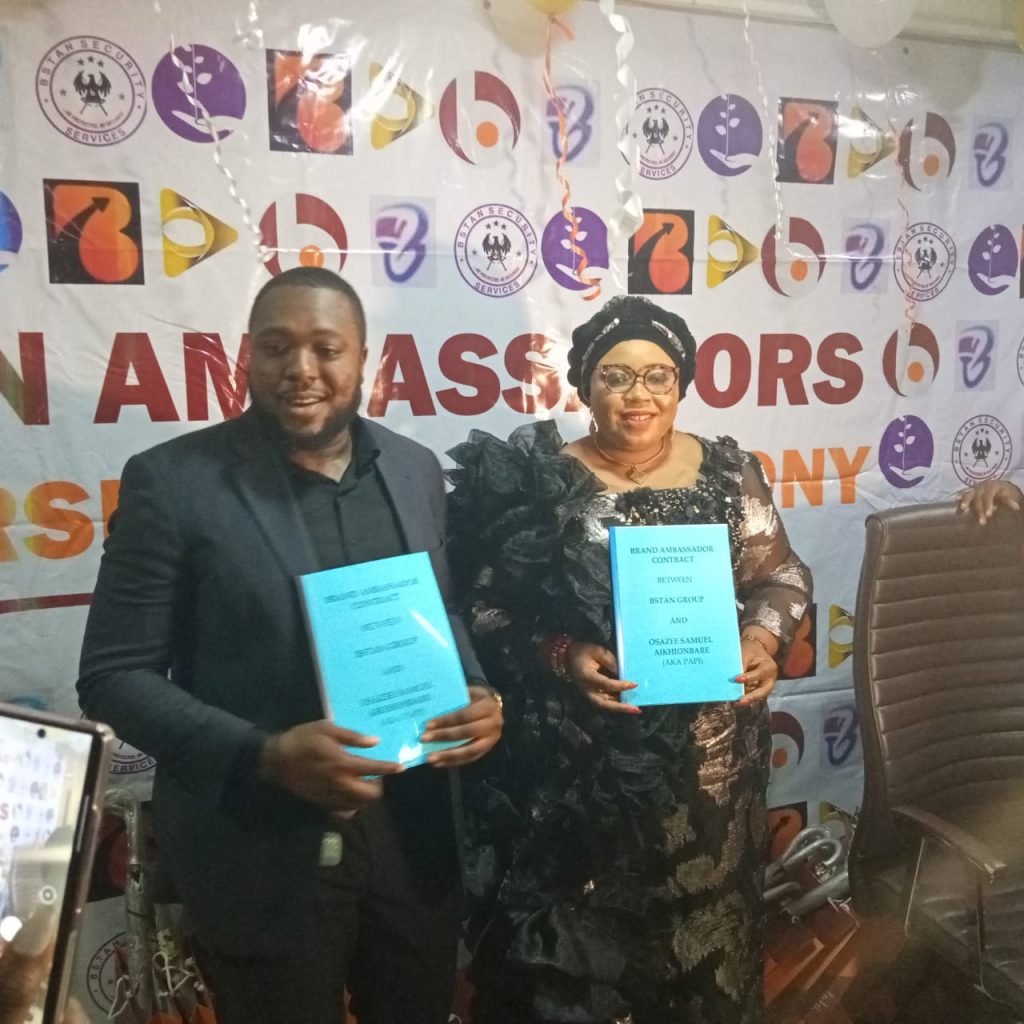
Is this Ambassadorial unveiling and endorsement a rallying point for your business?
Let me tell you that, to push a brand, you have to promote the brand. If you have a good news, the best you can do is to ensure the good news is heard everywhere in Nigeria that is what we just did today.
We just don’t sell houses or plots of land, we build dreams and these people coming to join us as our brand Ambassadors is part of the vision of the company to promote our business, to spread the good news, build dream, give people shelter by ensuring they have a roof over their heads especially with our avoidable BSTAN homes products which are low cost housing for lower class, middle class and upper class Nigerians and we have project across the country and at the same time I am particular about those who can’t afford these luxury.
It will interest you to know that, 75% Nigerians can’t afford luxury because of the state of the nation therefore, if you are building houses that are expense its means you are building for less than 30% Nigerians so for us it’s like big brand.
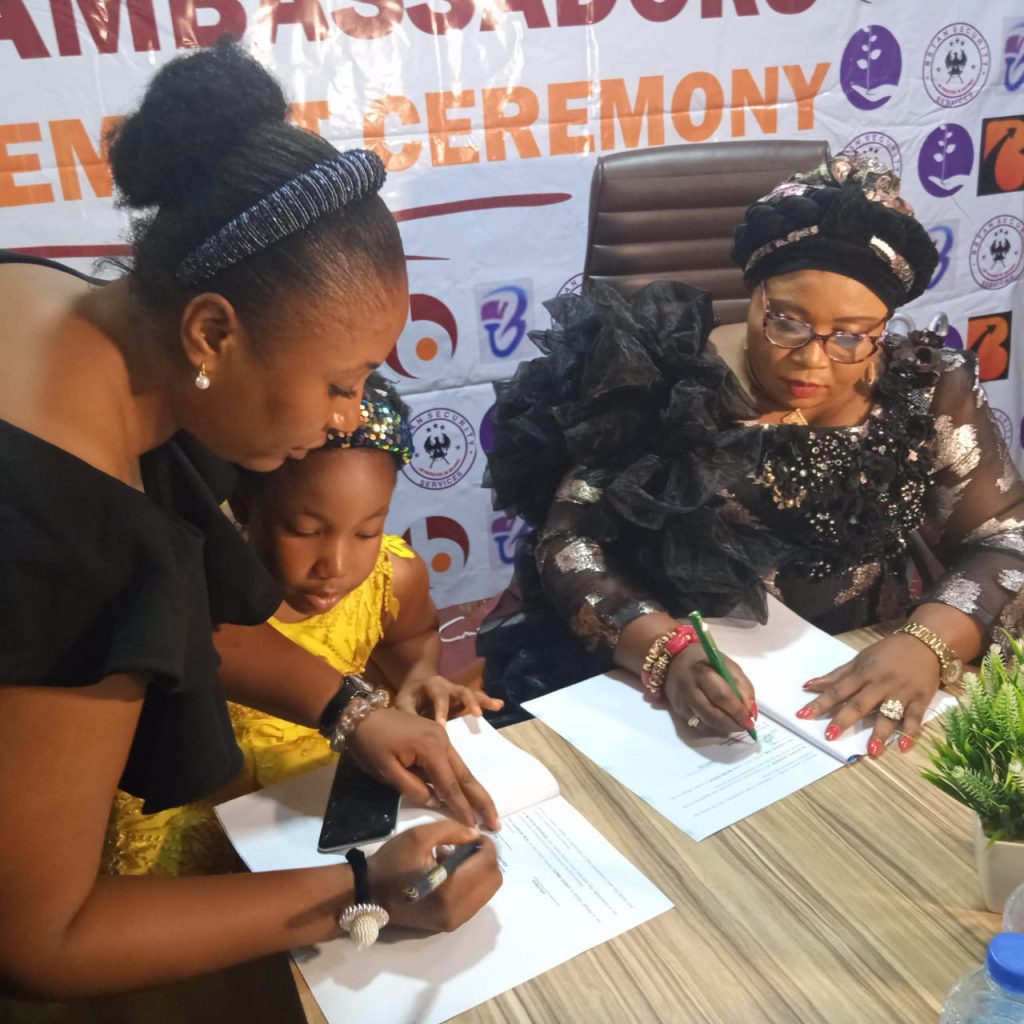
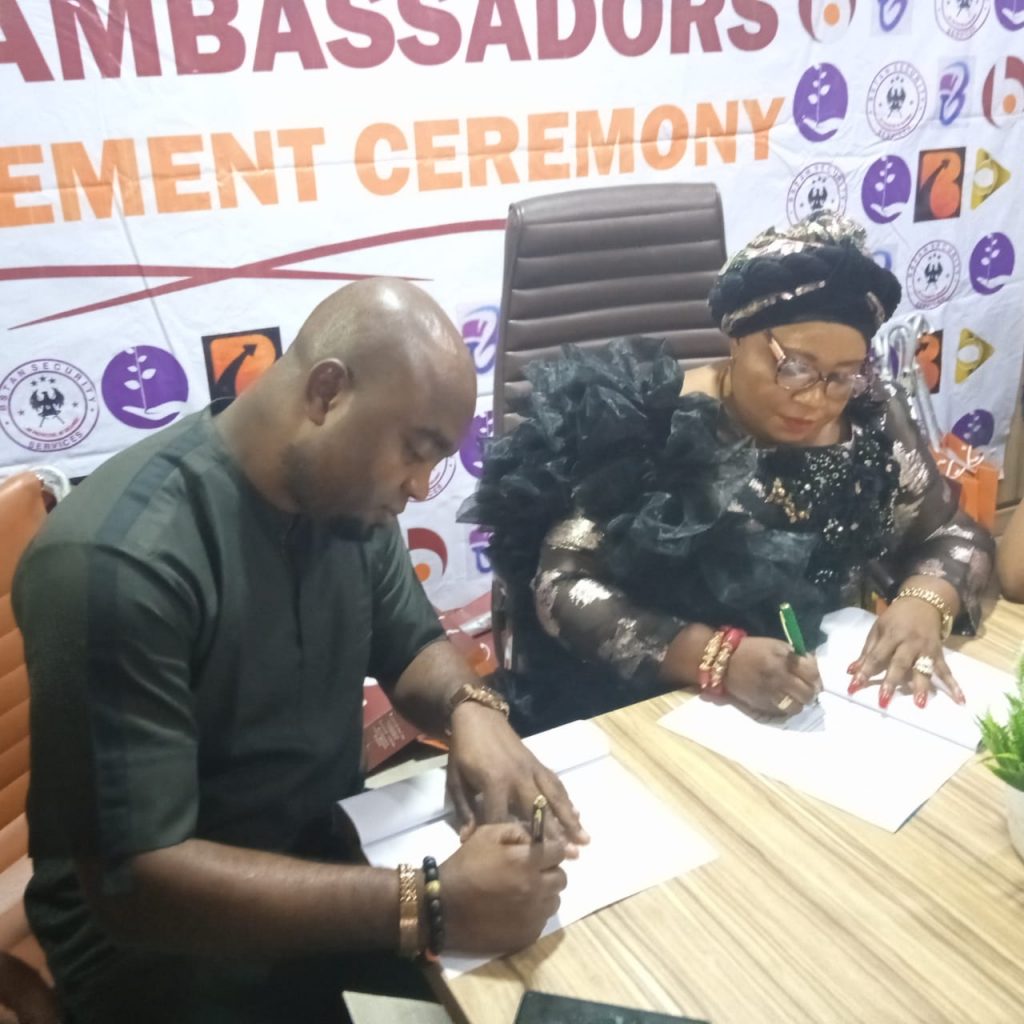
Building collapses has been a serious threat in Nigeria, how do you think operators can tackle this?
Quality control is the answer for building collapses in Nigeria. I am a civil engineer, I am a Phd. holder in estate and for me it’s all about quality control there is no shortcut.
Also the Council for the Regulation of Engineering in Nigeria, COREN and others regulated bodies should come out with regulations that can stop deficit in housing that can stop collapse structures.
Another solution is that people should also have a good orientation because when an engineer gave you a bill don’t just said it’s too much and go and give your project or the work to bricklayer it for both party and we need to put regulations and sanction in the industry.
You are been using Actors, Actress, Musicians to mention but a few. Do you intend to use more footballers like what you did years back when you unveiled sports man like Kanu Nwankwo as your brand Ambassador?
Of course, the answer is yes, for us we are not tribalistic, in BSTAN group. I call this company Nigeria, because we have almost all the tribes across the country.
And we are not religious bias, we have Christian, we have Muslim we are not also bias about gender, we equal male and equal female so, it’s a balance structure.
Same way for the industries we have people in Nollyhood, sportsmen, we people in the music industry, as our Ambassadors, we also have children as you can see today we have first kids legacies Ambassador
For us we promote this brand through people who have done well for this nation, this nation need to celebrate you and for us, we promote this people and their sectors, its open to sports men and women to be part of our Ambassador like we have done before.
What of media that serves as a tool for information dissemination, do you have plan for journalist?
The Journalists are very major integral part of nation building because without journalists information can’t be spread across everywhere, that is why for me be an advocate for youth in government, we are trying as much as possible to preach the gospel of right information, right Journalism we should do the right job, we should not be paid to give the wrong news we should give the right news.
We should celebrate the Journalists as much as we celebrate others people we need to celebrate journalists because there is no business you are doing now without information and journalists because you want your product to be sell.
So, we open to every sectors so far, is all about nation building it’s about economic stability, it’s about promoting the good standard living for the citizens of Nigeria.
What is your message to New Ambassadors?
We are expecting goodwill, good information, spread good news, represent the quality and standard of BSTAN brand, give out information to your people about avoidable home at BSTAN and how they can get, we have land as low as 850,000 in Abuja, we have house less than one million naira in Kuje and Ushafa with two years payment plan.
As for home Titans app, it’s a package that believes will deliver house to every Nigerians with as little as 1 million not a plot. While kids legacy is package for all Nigerian children through land banking across state in Nigeria which indicate that the more a child is growing the the money increases. With that property future of such children is secure.
We equally have the traders’ Scheme for people are into small business for, Mechanic, Drivers, School Shirt holders, Vulcanizers, Carpenter, with as low as N2,300 per day or N20,000 in a month, you can own a land after 2 years so, no matter you are earning, if the will is there, the win is there.
That is why this information needs to be spread across the country. We have what is called the kids legacy where parent can do land banking for their children and the loved ones so, the ball is in everyone’s court to pick this information and reach out to BSTAN for their property.
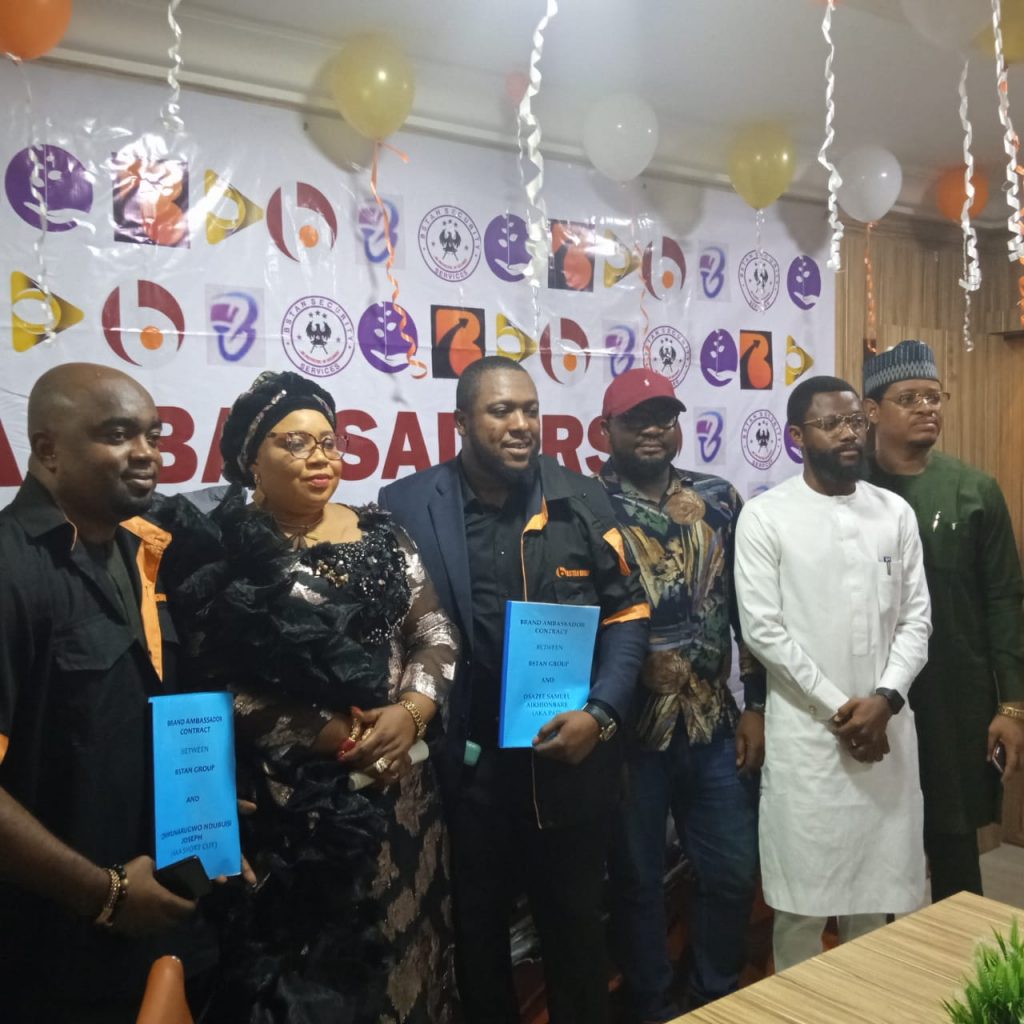
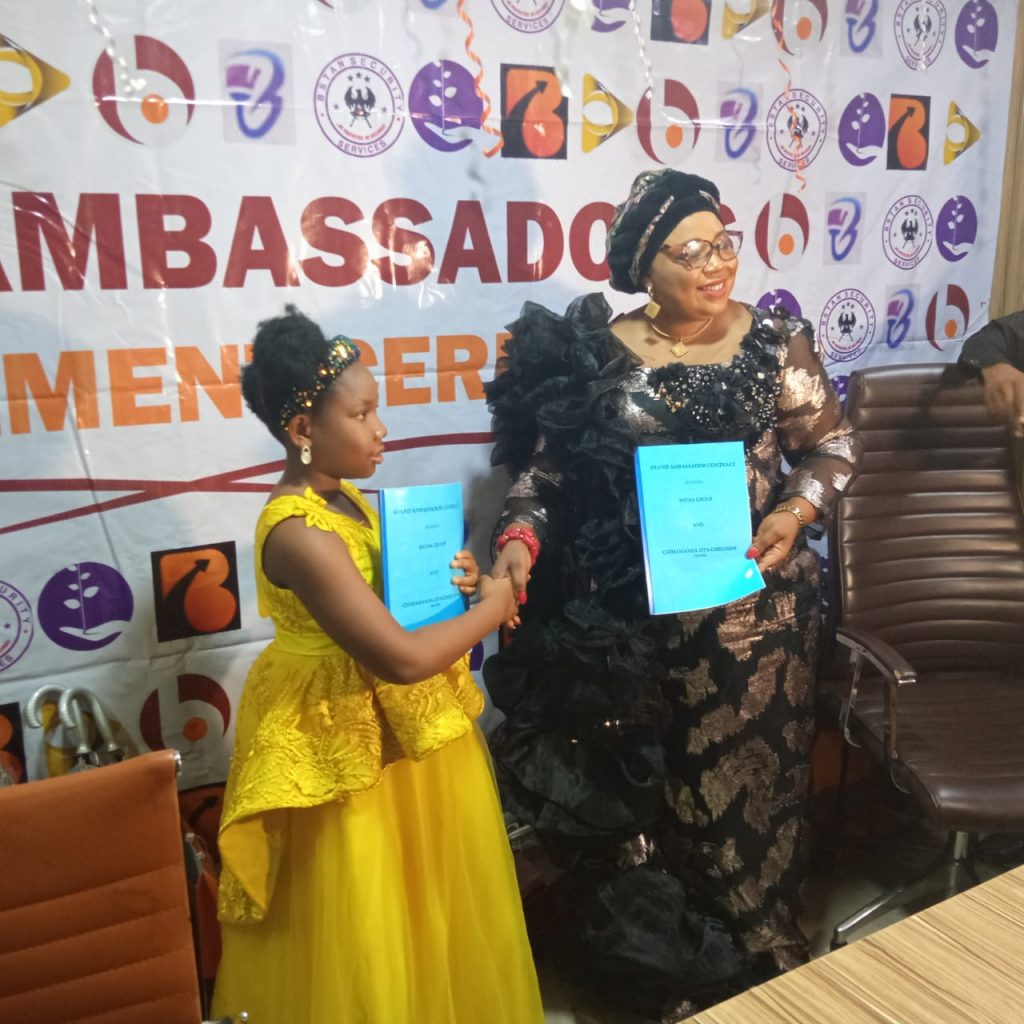
Can you tell us a brief history on how you started a BSTAN?
We start BSTAN group as far back as 14 years ago with the desire to own a home after owned a home, we thought of bringing some new things on board for people to own a home as a professional and we went into real estate business as an engineer to build avoidable homes for everyone and come up with opportunities and mortgage system that can cohesion the effect of not been able to afford the right mortgages through banks and saving that is not enough and we came up with different campaigns that can help people to own a home.
It is all about passion, for me this business kick off with passion for every Nigerian to own a home, passion for less privileges to own a home.
What are the likely challenges you face?
The challenges has been the the lack of support from government, Mortgages, the finance industry to reduce the effect of the housing industry where by our customers, the citizens of this country can assess the right mortgage to buy a property and of course the government ensuring that right infrastructure is put in place to promote estate development that is going on across the nation.
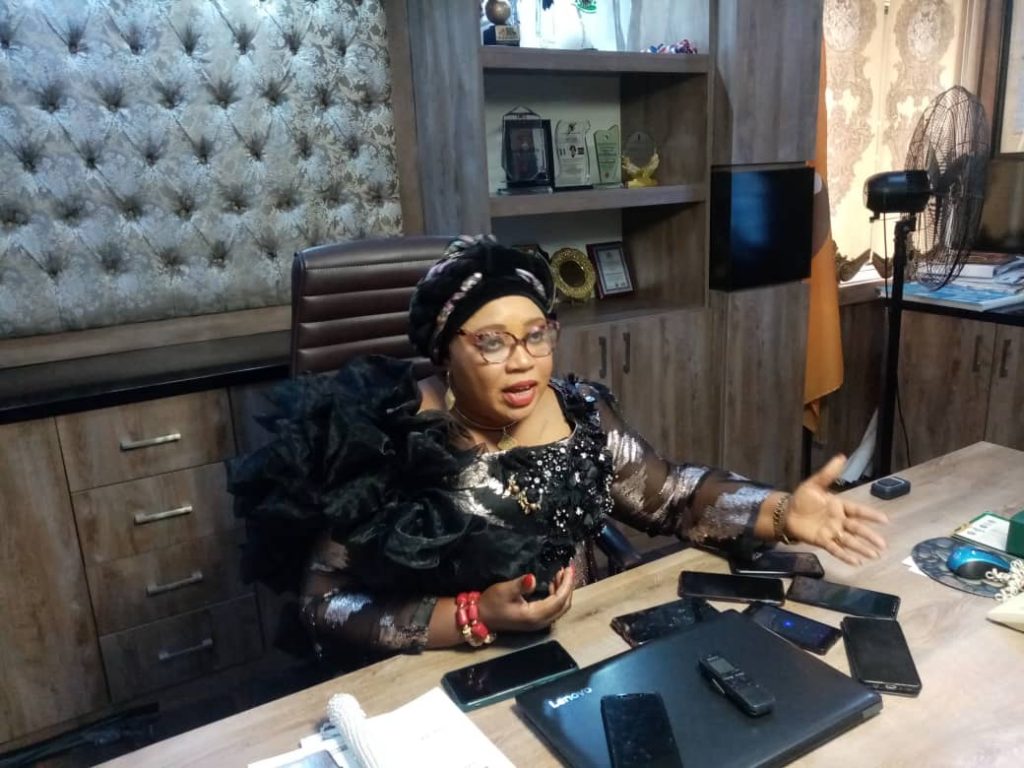
Interviews
Social Cohesion Is The Glue That Holds Society Together – Ihua
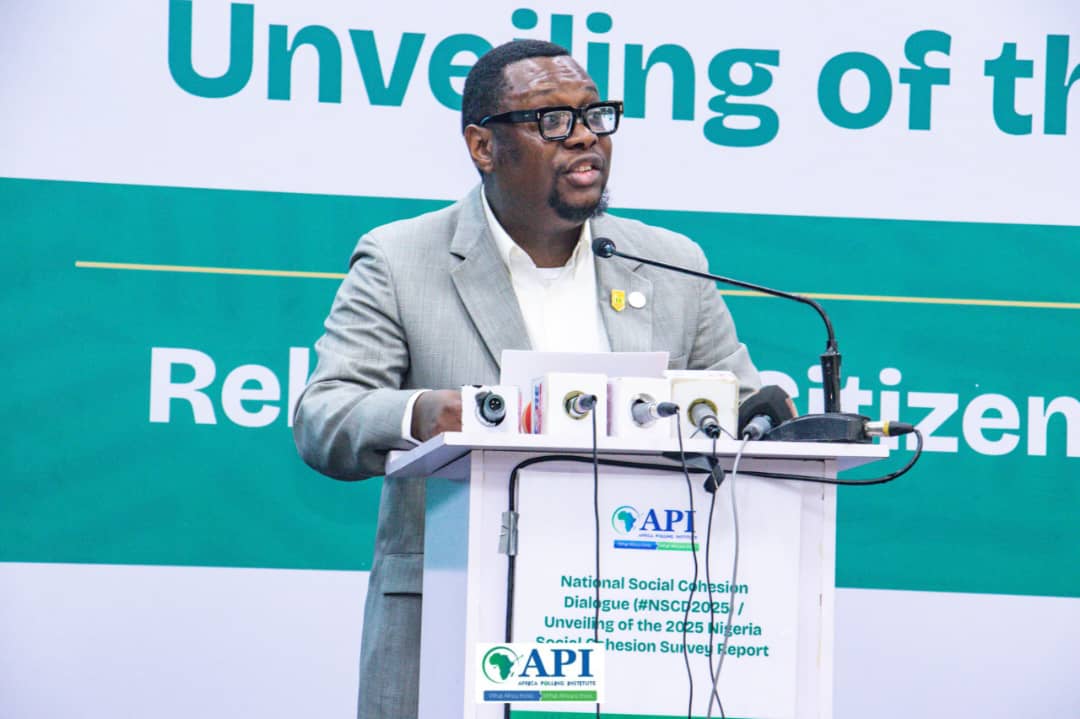
The Executive Director of Africa Polling Institute (API), Professor Bell Ihua mni, speaks in this interview about the latest findings from the Institute’s 2025 Nigeria Social Cohesion Survey, recently unveiled in Abuja. He argues that social cohesion is the glue that holds society together, and for Nigeria to make progress, government at all levels must pay attention to the subject of social cohesion. Joel Ajayi brings us excerpts from the exclusive interview.
Your Institute has been around for a while now, conducting surveys, opinion polls, social research, and churning out all manner of data to support national development. You recently released a study on social cohesion in Nigeria. Can you tell us a bit about that?
Thank you very much for the opportunity and your kind words. Yes, Africa Polling Institute has been around since 2019, and we’ve been committed to bridging the gap between the government and the governed by helping to capture the opinions, views, perspectives, and attitudes of citizens in Nigeria and sub-Saharan Africa on issues relating to governance, democracy, economy, markets, and public life.
So, from the very hard issues, such as the economy, governance, and people’s perceptions of democracy today, to the much softer or lighter topics, like entertainment, how people relax, what comedy skits they watch, and what they love to eat for breakfast, lunch, or dinner.
So we straddle across board. However, I would like to start this interview by clarifying a few key points. First, it is worth noting that the API is independent, non-profit, and non-partisan. We do not represent any commercial, political, or group interest whatsoever. I say this because we have had instances in the past where some politicians attended our events and made certain statements that a section of the media tried to affiliate us with such perspectives.
No, we are independent and neutral. Secondly, we are a group of credible professionals, men and women of integrity. What we find from our studies is what we report and publish; we do not try to paint or embellish our results to favour any section of society. I’ve been around for a while, and we have worked extremely hard to get here. Stakeholders within the industry can attest to the quality of our work. I resigned from my lecturing job and returned to Nigeria from the UK in January 2012. Since then, I have conducted polls and surveys, working with various administrations, including those of President Goodluck Jonathan, President Buhari, and now President Bola Tinubu.
I have found over the years that certain functionaries may not always agree with our findings, but we publish what we find nonetheless, and they know we are credible. I say this because sometimes our findings may come across as if we are anti-government or anti the political party in power, but the fact is that we are pro-Nigeria. We speak trust to power using hard, credible, scientifically researched data.
Thirdly, as a Member of the National Institute of Policy and Strategic Studies (NIPSS), I am committed to Nigeria’s long-term development. As you may be aware, our motto is: Towards a better society, and once you’ve been through the senior executive course (SEC) or even any of the short courses there, your orientation has been reshaped from that of a complainer or problem-identifier to a solution provider for the nation.
In essence, we do not just bear mni after our names for nothing; it comes with a lifetime obligation of service to Nigeria. Finally, let me state that, as opposed to the rather negative reports shared in the media regarding the state of social cohesion in Nigeria, there are quite a lot of positive findings from the 2025 study showing that Nigeria has made quite some progress, especially in comparison with the previous government, and they need to be highlighted further.
This is interesting to hear. Okay, let’s start with the positives. Can you tell us about some of the positive findings from the social cohesion survey?
Thank you again. Yes, as I mentioned, Nigeria has made some progress in improving the state of social cohesion under President Bola Ahmed Tinubu. First, the Nigeria Social Cohesion Index was calculated as 46.8%. Although this is still under the average threshold of 50%, it is a 7.2 percentage point improvement from the 2022 score, which stood at 39.6%. Secondly, we have also observed improved attitudes among citizens in several areas.
For example, in the area of how united or divided Nigeria is today, the data reported that 76% stated that the country is much more divided today, compared to four years ago. This percentage may seem high, but it represents an 11-percentage point decrease from the 2022 score of 87%, indicating that fewer people currently believe the country is much more divided today under the administration of President Tinubu, compared to that of President Buhari. Also, in the area of Gender Equity, there is a glimmer of hope when you see the data.
For instance, 63% say they would be willing to vote for a Woman as President of Nigeria, 69% would be willing to vote for a Woman as Governor of their State, and 76% would be willing to vote for a Woman as their local government chairperson. In addition, 79% of citizens believe that qualification and competence should be the primary focus, rather than gender, when considering individuals for public positions; 75% believe that people should be paid according to their competence, not their gender; and 73% agree that women should have equal entitlement to family inheritances.
These findings suggest an increasing openness for women to hold top political offices and acceptance that women can occupy prominent political roles beyond just voting. Additionally, 87% believe that boys and girls should have equal access to education, which is a very positive development. As you can see, we’ve made some progress in certain areas, and it is essential that we highlight them.
From the data, in what areas of social cohesion is Nigeria still lacking as a country?
Based on the data, there are several areas that require a lot more work to achieve. For instance, areas of identity and trust remain significant concerns.
On the issue of identity, the data reported that more Nigerians have a proclivity towards ethnicity than nationalism. You see, one of the questions on the survey asks citizens how they see themselves. It asks whether they see themselves as Nigerians or first from their respective ethnic origins.
The literature suggests that the more citizens perceive themselves as Nigerians first, the more socially cohesive the country is; however, if citizens identify themselves primarily by their ethnicity, then the country becomes less cohesive. The data suggest that over the last decade, citizens have tended to identify more by ethnicity and less by nationality, identifying as Nigerians first.
So you see, there’s a lot that needs to be done to ensure that citizens put Nigeria first, that strong national identity that citizens are proud of and can give their lives for. You know, Western countries were established on the back of nationalism. Men and women came together to pledge their allegiance to their country, even to the point of going to war to defend the country.
My point is that we need to do more to entrench a national identity that serves as a rallying point for all citizens, regardless of their tribe, language, religion, age, and gender. Just as our national anthem states, though tribe or tongue may differ, in brotherhood we stand. The second big elephant in the room is the issue of trust.
The data reported significant erosion in citizens’ trust towards government and public institutions. Since the country’s return to democratic rule, citizens’ trust in the government has continued to erode, and this trend has become more pronounced over the past decade, first under President Buhari and now under President Tinubu. In fact, the 2023 election dealt a terrible blow to Nigeria, in the sense that it created serious divisions in the country, especially religious and ethnic tension, and that has deepened the faultlines and even eroded trust among citizens.
And this should have been the first task for the President the moment he assumed office. He should have introduced policies to reunite the country first and rebuild the bonds of love, togetherness, and mutual trust. And this should have been reflected in his appointments as well, but we all know what citizens are saying about the appointments.
How important is the Social Cohesion Survey data to driving development in Nigeria?
One of the top scholars of social cohesion in the literature, Langer, describes the concept as the glue that holds society together. When there is no glue holding the society together, you know what would happen to it. Agitations here and there, clamour for secession, rise in crime and nefarious activities, calls over perceived marginalization, and all that.
So do you understand why we have IPOB and the rest, the north saying they have been marginalized in terms of public appointments, the west saying their forests have been taken over, and the Niger Delta activists having their own agitations? They are all symptomatic of a weak glue holding the country together. That is the importance of social cohesion. Do people have a sense of belonging in the country, or do they see the country as we versus them? Do they trust those in government? Do they even trust fellow citizens from other religious divides or other parts of the country?
Do they think that all Nigerians are equal under the law, or are there some Nigerians more equal than others? We talk about multidimensional poverty affecting 76 percent of the population, in a country where some people are saying ‘money na water.’ You talk about our health systems, and you hear anecdotes of how public hospitals lack basic health supplies and medicines to treat citizens, especially in rural areas, such that they have to send some patients away at times.
You hear citizens make sarcastic comments like ‘may Nigeria not happen to you.’ These comments all emphasize the role of social cohesion as the glue that holds society together. Therefore, you can’t discuss the development of a country without addressing the issue of social cohesion.
Can you tell us a bit more about the capacity-building workshops organized by API? What were they about, and who were the target audiences?
Yes, the essence of our research efforts isn’t just to undertake studies and publish them, but also to engage with key stakeholders. With the support of our donor, Ford Foundation, we were able to enhance the capacity of two groups of stakeholders. First, we had a session with institutions mandated to promote unity, oneness, and cohesion in the country.
So public institutions like the National Orientation Agency, Federal Character Commission, Nigeria Television Authority, and the rest. We brought them together to expose them to the concept of social cohesion and how to design policies and programmes through the lens of social cohesion data.
The second group of stakeholders consisted of media practitioners, including information officers from public institutions and journalists from print and electronic media. Their session focused on how to engage in socially cohesive media reportage. They were both well attended and well-received. Many participants had never heard of the concept of social cohesion, and discussing the indicators measured and the survey findings was considered quite insightful.
In conclusion, what advice do you have for policymakers on the need to imbibe the use of social cohesion data in their policymaking?
Our major thesis is that for Nigeria to make progress, governments at all levels —federal, state, and local— must pay close attention to the subject of social cohesion and understand the implications of the survey findings. Then, they need to begin implementing policies and programmes to promote unity, oneness, peaceful coexistence, and cohesion. That glue holding society together has to be strengthened to build an enduring and sustainable country.
Without unity and peaceful coexistence, we cannot make progress as a people. But, of course, the example has to be set from the top, so we need to see President Tinubu and his administration generally instituting initiatives that are geared towards building national cohesion, then we can see state Governors following suit, and local government council chairpersons also introducing local initiatives to promote a sense of belonging, national identity, and trust. Finally, our politicians need to change their politics of prebendalism and the ‘winner-takes-all’ approach.
They need to put the country first and consider how to ensure that all citizens have a strong national identity and feel a deep sense of belonging, pride, and trust towards Nigeria. I strongly believe our best days are ahead of us.
-

 Featured7 years ago
Featured7 years agoLampard Names New Chelsea Manager
-

 Featured6 years ago
Featured6 years agoFG To Extends Lockdown In FCT, Lagos Ogun states For 7days
-

 Featured6 years ago
Featured6 years agoChildren Custody: Court Adjourns Mike Ezuruonye, Wife’s Case To April 7
-

 Featured7 years ago
Featured7 years agoNYSC Dismisses Report Of DG’s Plan To Islamize Benue Orientation Camp
-

 Featured4 years ago
Featured4 years agoTransfer Saga: How Mikel Obi Refused to compensate me After I Linked Him Worth $4m Deal In Kuwait SC – Okafor
-
Sports3 years ago
TINUBU LAMBAST DELE MOMODU
-

 News1 year ago
News1 year agoZulu to Super Eagles B team, President Tinubu is happy with you
-
Featured6 years ago
Board urges FG to establish one-stop rehabilitation centres in 6 geopolitical zones
